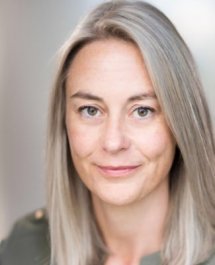
When the idea came to me for Deep Water, my debut thriller, it wasn’t the characters that first dropped into my head, the twist or even the crime – it was the setting.
Amarante is paradise, an uninhabited, unspoilt island somewhere in the Indian Ocean. Virginie and Jake sail there for adventure – but when they reach Amarante, dark secrets surface and their dream abruptly turns into a nightmare.
Ever since Daniel Defoe published the first novel written in English, Robinson Crusoe, writers have been drawn to remote island settings. Alex Garland’s The Beach, Agatha Christie’s And Then There Were None and William Golding’s Lord of the Flies became classics. There’s something about the isolation, claustrophobia and sense of otherness that works so well in crime and thriller novels.
“It's a locked room without doors,’ says Camilla Bolton, senior agent at Darley Anderson, who specialises in crime and thriller authors. “You have a set number of characters, and so a set number of options of who will be the hunted and who will be the hunter. Everything is contained to keep the reader on their toes.”
Ruth Ware, the oft-called “queen” of locked-room mysteries, agrees. “I do think they make great settings – they’re kind of locked rooms in and of themselves.” Katherine Armstrong, deputy publishing director of crime/thrillers at Simon & Schuster, backs this up: “They play on our innate fears of being trapped, while still being safe from actual harm.”
As the water is a natural boundary, all the author needs is for no boat to arrive, a storm to blow up or a fear of the deep, and a writer has their characters – and readers – trapped right where they want them.
“Being surrounded by water is a really rich metaphor – it became a huge theme in my book,” says Rebecca Pert, whose debut surrounding an unexplained death, Still Water, is set on Unst in the Shetland Isles. “A small location such as an island lends itself to a really oppressive atmosphere and feeling of entrapment which works brilliantly for crime.”
Sunday Times bestseller Lucy Clarke capitalised on that sense of entrapment in The Castaways, in which plane crash survivors are marooned in Fiji. She says: “Islands provide a beautifully menacing intersection of utter freedom – an empty horizon, an open sky – with the claustrophobic sense of having no escape.”
Such menace was “essential” for Rebecca Netley when choosing a wild Scottish island for her cross-genre ghost story/thriller The Whistling. She says: “The book needed a sense of isolation and the peril of not being able to leave.”
Mary Grand knows islands well – she lives on the Isle of Wight and has set three crime novels there, including The Island. “An island is, in a sense, a character in its own right,” Grand says, “a place where cosiness can slowly morph into claustrophobia.”
That sense of closing in certainly hits home for Virginie in Deep Water, once the initial attraction of being in such a beautiful location has begun to erode ––
‘Despite the heat and Stella’s equanimity, the gooseflesh was back. Virginie wrapped her arms around herself, letting it really sink in, for the first time, how isolated they were, with only one another to rely on. If you died here, you might never be found.’
Vulnerability is something Holly Craig plays with in her upcoming survival suspense debut, The Shallows, which she chose to set on a private island off Queensland “mainly because the sense of being cut off from civilisation and the dangers lurking in Australian waters, such as fatal jellyfish and sharks, adds to the claustrophobic atmosphere and heightened sense of danger that I want to create in my readers.”
In a way, the isolated island setting is an update to the great country house locked-room murder mysteries – and perhaps a more egalitarian one, unless, like Craig, or Ellery Lloyd in New York Times bestseller The Club, or Susi Holliday in The Last Resort, in which six strangers are invited to an all-expenses-paid island retreat, you are opting for an exclusive private enclave.
“There's that instant 'no escape' feeling, which is a great set-up for anything with a bunch of unreliable, untrustworthy and unlikeable characters,” says Holliday.
And let’s not forget the lure that islands, whether private or not, tropically warm or barren and windswept, hold. Although she is yet to pen an island novel herself, “there’s just a sort of inherent romanticism,” admits Ware.
In Garland’s The Beach, Richard and the others fall for the island’s promise of a free society, a theme that permeates Golding’s Lord of the Flies and which Deep Water draws on, as Virginie and Jake decide it will be the perfect place for a new start. Yet, as one character warns ––
‘“I am sorry to say money, power – all of life, its rewards, its games, its problems – they are all here on this island in the middle of the Indian Ocean just as much as they are in London, in Toronto, in São Paulo. They follow you everywhere.”’
Before it all comes crashing down, when we start these stories, as both writers and readers, the protagonists often have island-shaped stars in their eyes. “It’s almost romantic, getting away from it all,” sums up psych thriller What His Wife Knew author Jo Jakeman, who is currently writing an island-set novel. “But the reality of being cut off from any kind of help is what makes a crime writer’s twisted little heart sing.”
“The idyll versus the reality,” sums up Suzanne Baboneau, managing director at S&S, who acquired Deep Water. “It works every time.”

DEEP WATER published 7th July, 2022
Published by Simon & Schuster pbo £8.99